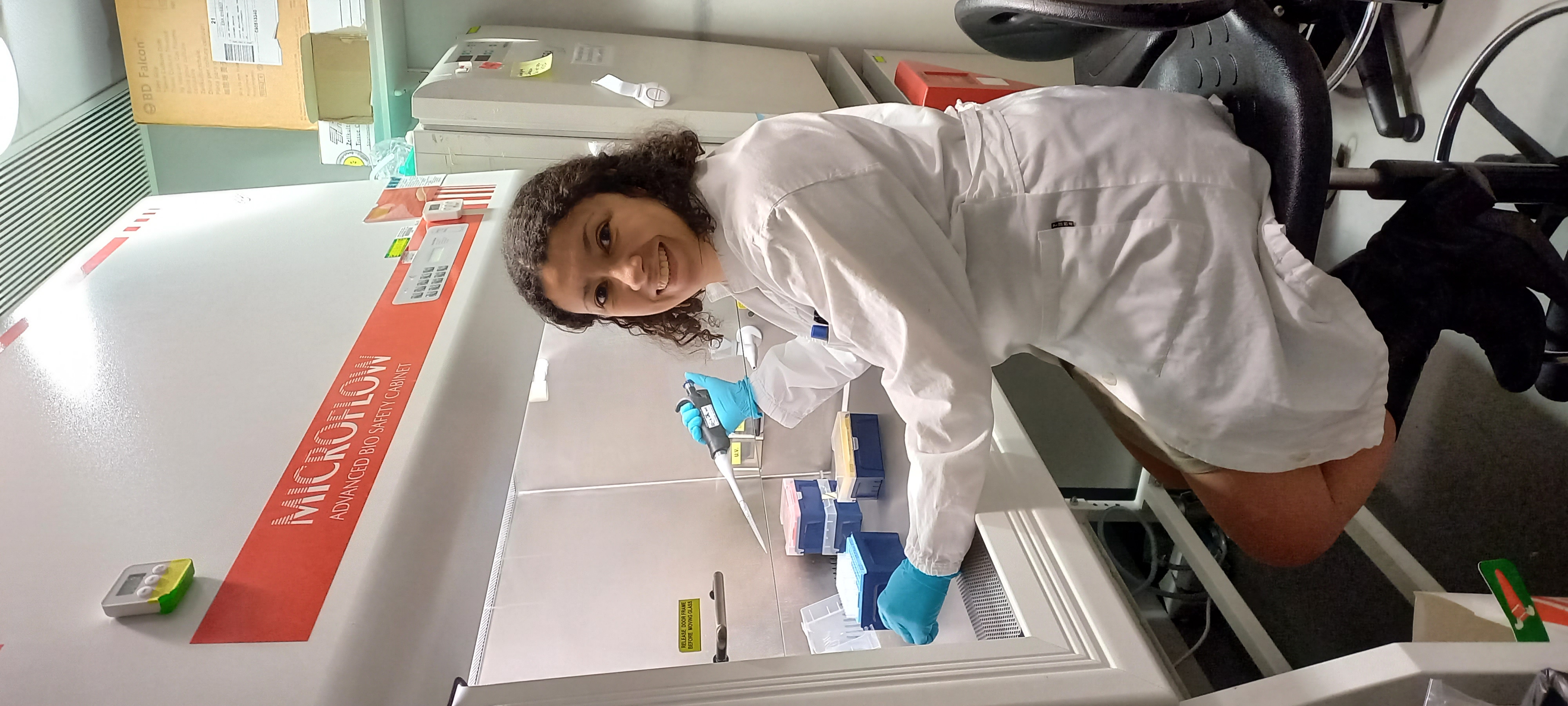Dr. Ghita Ghislat joined Imperial as a Marie-Curie Research Fellow in 2022. Her research programme is interdisciplinary at the interface between cell biology, immunology and artificial intelligence.
 A native of Morocco, Ghita obtained a BSc in Biochemical Sciences from the University of Casablanca, then a PhD in the Polytechnic University of Valencia in Spain. Next, she undertook her postdoctoral training at the University of Cambridge, working on Cell Biology. After completing her research on deciphering the mechanism of autophagy in health and disease, the focus of her research shifted to Cancer immunology. The award of two consecutive individual postdoctoral fellowships - including the European Marie Skłodowska-Curie Program - allowed her to join a world-renowned Immunology institute in France. There she discovered an important mechanism in key immune cells to fight cancer and also established a strong collaboration with laboratories specialising in Artificial Intelligence for health care.
A native of Morocco, Ghita obtained a BSc in Biochemical Sciences from the University of Casablanca, then a PhD in the Polytechnic University of Valencia in Spain. Next, she undertook her postdoctoral training at the University of Cambridge, working on Cell Biology. After completing her research on deciphering the mechanism of autophagy in health and disease, the focus of her research shifted to Cancer immunology. The award of two consecutive individual postdoctoral fellowships - including the European Marie Skłodowska-Curie Program - allowed her to join a world-renowned Immunology institute in France. There she discovered an important mechanism in key immune cells to fight cancer and also established a strong collaboration with laboratories specialising in Artificial Intelligence for health care.
"Imperial’s reputation in bridging the gap between bench to bedside research attracted me to apply for my second Horizon 2020's Marie Sklodowska-Curie Individual Fellowship. This two-year funding allowed me to return to the UK to develop a promising research idea stemming from my multidisciplinary background.
Understanding why and how defective immune responses occur and tailoring drug design to improve their outcome, is the current mission that drives my passion for science.”
Ghita is particularly interested in cancer immunity. Understanding how cancer cells hijack our immune system to multiply in our organism is the main question that she is endeavouring to tackle. Designing and testing drug compounds to stop cancer cells proliferate at the expenses of our immune system is an important translational edge of Ghita’s research programme.
Ghita is also chairing the fundraising committee of Women In Autophagy, the international network dedicated to support early-career scientists working in autophagy.
Ghita drives her research project in parallel to raising a child with special needs.
“As a special needs mother and scientist who enjoyed learning from different fields despite all the challenges that come with, my key advice for early-career scientists is perseverance driven by passion. Find what makes science meaningful for you, enjoy every bit of it and learn from the hurdles that come your way.”
